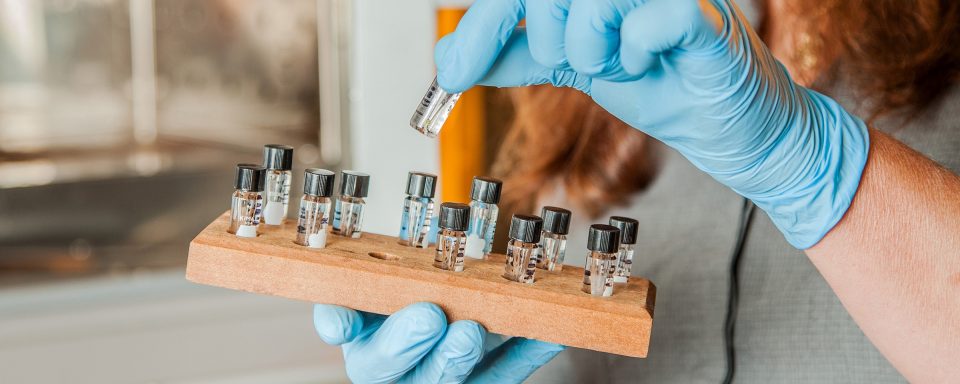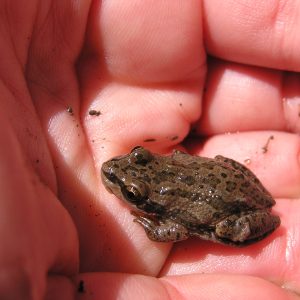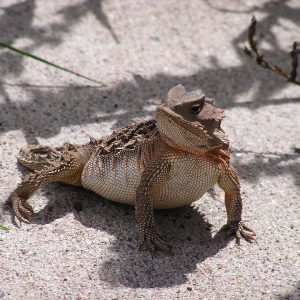Contact Biological Sciences
Helpful links
Biological Sciences
Summer 2024 courses

View all of the Biology summer 2024 courses in the Academic Catalog.
Featured courses
BIO 300 – (class # 1094) High Altitude Physiology Accordion Closed
This 1 credit special topic course is offered online, and taught by Betsy Gideon, M.S. This class will provide a brief overview of the physiology of visiting and residing at high altitudes. Likewise, we will explore common illnesses associated with visiting high altitude destinations.
BIO 366 – Behavior of Animals Accordion Closed
This course is offered online. Surveys the theories and reasons that explain the behavior of animals. Letter grade only.
BIO 373 – Marine Biology Accordion Closed
This undergraduate level class is offered online. Students will explore the behavior, ecology, biogeography, and evolution of marine organisms relative to the physics and geology of the ocean.
ENV 499/599 – Venomous Reptile Management and Safety Accordion Closed
This 2 credit course is intended for students and professionals who are interested in learning how to safely manage rattlesnakes and other North American venomous reptiles. Learn identification, biology, ecological function, and conservation of venomous reptiles, and practice safe handling techniques!
BIO 526L – Herpetology Lab Accordion Closed
Learn basic herpetological taxonomy, anatomy, morphology, function, and behavior; take deep dives into topics like amphibian parental care (no experience in milking caecilians required); and practice lab and field techniques during conservation experiences with agency partners.
Courses Available
BIO 154 – The Art and Science of Human Movement
Introduces the study of human exercise and provides a broad-based understanding of applications of human movement to health and science.
BIO 181 – Unity of Life I: Life of the Cell
Introductory course for biology majors. Emphasizes the unifying molecular and cellular principles of all life on earth.
BIO 181L – Unity of Life I: Laboratory
Introduces experimental techniques in cellular and molecular biological sciences.
BIO 182 – Unity of Life II: Lives of Multicellular Organisms
Introductory course for biology majors. Emphasizes the unifying organismal principles of life on earth.
BIO 182L- Unity Of Life II Laboratory
Hands on experience with concepts introduced in BIO 182.
BIO 201 – Human Anatomy/Physiology I
Integumentary, skeletal, muscular, nervous, and sensory systems in health and disease.
BIO 201L – Human Anatomy/Physiology I Lab
Examines histology and human organ systems including integumentary, skeletal, muscular and nervous.
BIO 202 – Human Anatomy/Physiology II
Body fluid, cardiovascular, digestive, respiratory, urinary, reproductive, and endocrine systems in health and disease.
BIO 202L – Human Anatomy/Physiology II Lab
Examines human organ systems including endocrine, cardiovascular, immune, respiratory, urinary, digestive, and reproductive.
BIO 240 – Genetics and Evolution
Fundamental concepts of inheritance, including genetic and chromosomal character determination, and natural selection leading to population changes and speciation.
BIO 244 – Fundamental Evolutionary Biology
Fundamentals of evolutionary theory including natural selection, adaptation, species concepts and speciation, basics of phylogenetics and population genetics as well as patterns of diversification and extinction.
BIO 300 – Human Biology
Series of independent mini courses dealing with aspects of biology and human conditions. Letter grade only. May be repeated for a maximum of 10 units. Each repeat must be a different topic than previously taken. Topics Offered: Grand Canyon Birds, Grand Canyon Wildflowers, Overview of Fish, Emerging Pathogens, Human Sexuality
BIO 338 – Physiology of Exercise
Physiology of human performance during exercise, including cellular and systemic responses, environmental, and training program considerations.
BIO 345 – Sustainable Botany
Applies plant science principles to aspects of growing plants, including soil science, pathology, physiology, entomology, orchard, garden, and greenhouse with comparison of modern agribusiness to sustainable agriculture.
BIO 365W – Writing in the Biological Sciences
Provides students with practice in biological writing for both technical and non-technical audiences, with the goal of fostering development of effective communication of scientific information by majors in the biological sciences.
BIO 366 – Behavior of Animals
Surveys the theories and reasons that explain the behavior of animals.
BIO 373 – Marine Biology
Behavior, ecology, biogeography, and evolution of marine organisms relative to the physics and geology of the ocean.
BIO 399 – Special Topics
In-depth study of an aspect, concept, or problem within a program of study.
BIO 408 – Fieldwork Experience
Supervised field experience in an appropriate agency or organization.
BIO 444C – Human Physiology
Physiology of major body systems studied at the metabolic, cellular, and systemic levels, emphasizing homeostatic mechanisms.
BIO 485 – Undergraduate Research
Original research under the supervision of a research adviser.
BIO 497 – Independent Study
Individualized approach to selected topics by guided reading and critical evaluation.
BIO 526L – Herpetology Lab
This course will cover the identification, anatomy, behavior, ecology, management, conservation, and survey techniques for the herpetofauna (amphibians and reptiles) during laboratory sessions and field trips.
BIO 685 – Graduate Research
Letter grade or pass-fail.
BIO 697 – Independent Study
Individualized directed study on selected topics.
BIO 699 – Graduate Thesis
Individualized directed research, writing, and oral defense of selected thesis topic.
BIO 799 – Dissertation
Individualized directed research, writing, and oral defense of selected dissertation topic.

